Christian Reconstructionism & Ethno-Religious Conflict
Part 3
Morris van de Camp
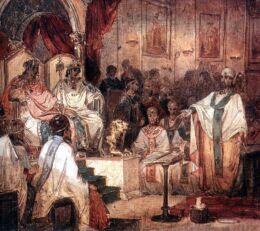
The purpose of the Council of Chalcedon in 451 was to determine the nature of Christ. It also determined the relationship of the state to Divine Providence.
1,889 words
Part 3 of 3 (Part 1 here, Part 2 here)
Making Gains
With a base of conservative, mostly old-stock American white women as supporters, Rushdoony started to make real gains. He researched and commented upon the early councils of the Christian Church and applied their outcomes to American society. One such council was the Council of Chalcedon.
The Council of Chalcedon was a meeting of Christian leaders in 451. To put it simply, its purpose was to determine the nature of Christ, and it was filled with bitter debate and immature drama. As a result, it is easy to trivialize the council, but the outcome of determining the nature of Christ also determined the place of Caesar, or the state, in the Cosmic Order. In his book The Foundations of Social Order, Rushdoony wrote:
Western liberty began when the claim of the state to be man’s savior was denied. The state then, according to Scripture, was made the ministry of justice. But wherever Christ ceases to be man’s savior, there liberty perishes as the state again asserts its messianic claims. Man is in trouble, and history is the record of his attempt to find salvation. Man needs a savior, and the question is simply one of choice: Christ or the state? No man can choose the one without denying the other, and all attempts at compromise are a delusion.[1]
The primary legislation of the statist revolution in the United Sates during the mid-1960s consisted of three laws which enhanced the power of the federal government: the 1964 Civil Rights Act, the 1965 Immigration Act, and the 1965 Voting Rights Act.
These legal abominations caused the policies of the United States government to separate from protecting the interests of the founding-stock white population. The 1964 Civil Rights Act in itself has become an illicit second constitution, while the 1965 Immigration Act legalized the genocide of Americans of Anglo descent via the Great Replacement, and the 1965 Voting Rights Act specifically dispossessed the South in a manner no different from how the Russian Empire had dispossessed Poles in the nineteenth century.
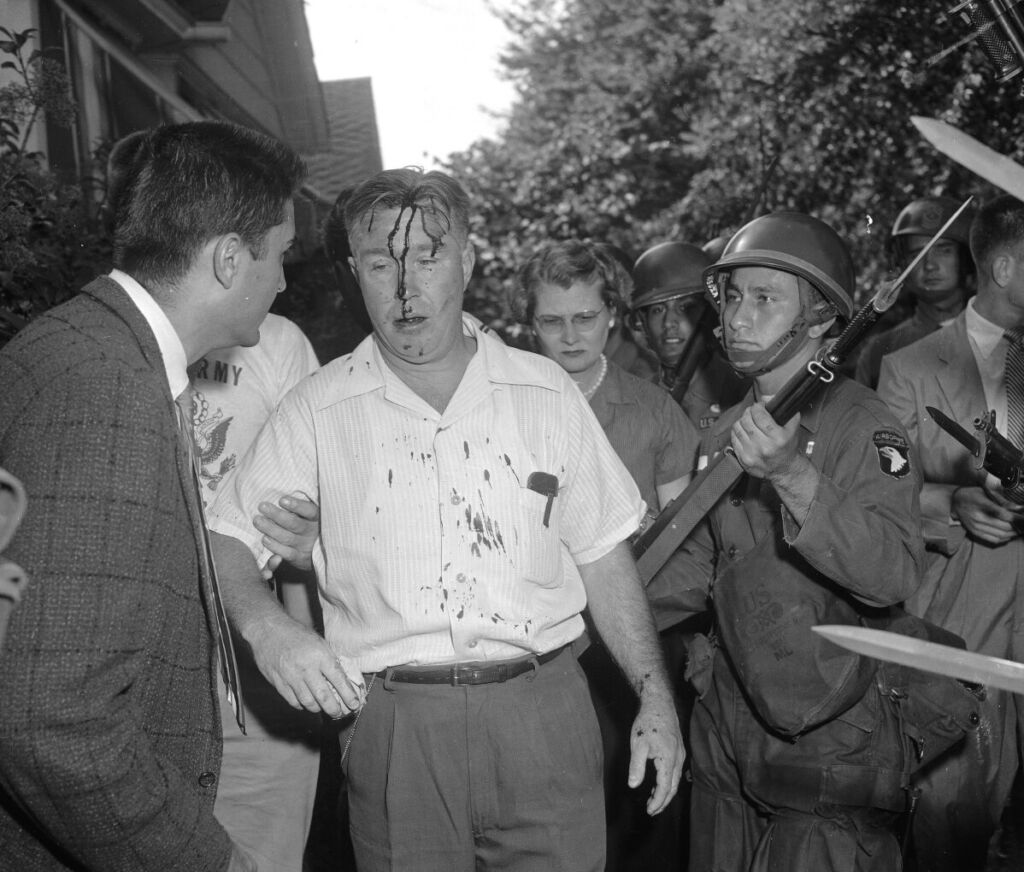
Sub-Saharans were integrated into white schools by armed paratroopers in the early 1960s as part of the “civil rights” revolution. After integration, schools became dangerous for whites.
Christian Reconstructionism
Rushdoony worked tirelessly from 1965 to 1968 to shape and drive the Calvinist faction of the old-stock American population. He gave 886 lectures and wrote 4,550 letters to his supporters. His theology came to be called Christian Reconstructionism, dominionism, or theonomy. They all mean the same thing. In short, it held that Christians must engage politically in order to improve America.
He published Institutes of Biblical Law in 1973, which clarified the particulars of how he believed Biblical Law should govern American society. His ideas were pro-Christian and ultimately anti-Third World immigrant, since he advocated for the establishment — or reestablishment — of America as a Christian country, thereby excluding Hindus, Muslims, Jews, and so on. Rushdoony rejected the concept of “Judeo-Christianity” as well as Premillennial Dispensationalism, a theological interpretation of eschatology which puts modern Israel at the center of a cosmic drama and views Jews as a divinely “chosen” people. Rushdoony was a Postmillennialist, a branch of Christianity which believes that the Kingdom of Christ must be established on Earth before the Second Coming. The logic of Postmillennialism is exactly the same as that of Preterism, except that Preterists claim that the Second Coming already happened in 70 AD.
In part because he rejected Dispensationalism, Rushdoony was at odds with the larger Christian Right throughout the 1970s. He was thus not able to obtain high levels of funding from wealthy donors. Additionally, his Christian-only focus alienated him from the more ecumenical members of the libertarian Right. In the 1970s and ‘80s, many anti-Communist American Christians worked with wealthy Saudis on various joint projects. The Saudis were keen on funding anti-Communist activities across the Muslim world, especially in Afghanistan after the Soviet invasion in 1979, for example.
Rushdoony nevertheless still found followers for his uncompromising stance. One important issue was crime. The “civil rights” revolution had led to an appalling crime wave, mostly fueled by young, sub-Saharan men which lasted into the early 1990s. In many of America’s cities, public transportation became dangerous and gunfire could be heard as rival gangs and drug dealers battled one other. Armies of panhandlers harassed young mothers in the parking lots of supermarkets. Institutes of Biblical Law offered a remedy for all of this.
Rushdoony hoped to found a university dedicated to his vision of Christian Reconstructionism, but he was unable to obtain the necessary funding. Instead, he moved to Vallecito, California and established a metapolitical nerve center from which he published books and newspapers, gave interviews, and made radio broadcasts. His headquarters was a hive of activity that connected Christian Reconstructionist housewives who were concerned about their children’s education with Washington, DC insiders.
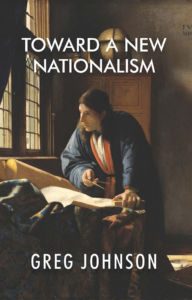
You can buy Greg Johnson’s Toward a New Nationalism here.
Rushdoony’s anti-statist ideology and uncompromising Calvinism put him at odds with a public school system dedicated to integration (and which was therefore dangerous for whites). Many old-stock American whites reacted to the problems wrought by integration by sending their children to Christian private schools. Then came Green v. Connally in 1971, which set the legal precedent for the Internal Revenue Service to withdraw tax-exempt status from private schools that “discriminate” on the basis of race. Any court case can be overturned by another, so liberal legislators were seeking to codify the decision into law. American whites had been painted into a corner.
Rushdoony’s views naturally led to homeschooling, which was seen as an answer to the problem of desegregated private schools were the Green decision to be enforced by the state — and indeed, during the 1970s most US states forbade homeschooling. Rushdoony produced educational materials for parents who wanted to homeschool their children. He became an expert witness in cases involving it, and his testimony greatly aided the movement. He also worked with a dedicated group of lawyers to help shape case law on the subject.
Green proved to be a crisis that united many conservative Christians, who were mostly led and organized by a Catholic named Paul Weyrich. The leaders of the Christian Right were not all Calvinists — many were practicing Catholics — but they were all influenced by Rushdoony’s ideas, although they never acknowledged this to anyone other than privately to Rushdoony and his son-in-law. These religious conservatives would go on to help Ronald Reagan win the Republican nomination and then propelled him to victory over Jimmy Carter in 1980.
Michael J. McVicar writes:
By the early 1980s, the Chalcedon Foundation had achieved a remarkable feat: by leveraging limited resources, Rushdoony had cultivated a small group of like-minded young men with a prodigious literary output. Gary North extended the reach of Rushdoony’s ideas into grassroots political activism and the farthest-flung edges of the American Right, ranging from the militia movement to the Ron Paul wing of the Libertarian and Republican Parties. Meanwhile, Gregory L. Bahnsen took Rushdoony’s ideas into the educational institution of America’s most conservative Reformed polities to influence the Orthodox Presbyterian Church.[2]
The Christian Right became an important part of Ronald Reagan’s political base, and Rushdoony’s anti-statist Christian views provided a critical philosophical counter to the Soviet Union as well as the lingering statist social policies of the New Deal. Christian Reconstructionism also neatly aligned with free-market ideologies. Although a Calvinist himself, Rushdoony’s ideas found an audience within other denominations of the Christian Right as well. Ideas have consequences, and the consequences of Rushdoony’s ideas were victory in the Cold War, a safe place for whites to educate their children, and a religious impulse to end the crime wave.
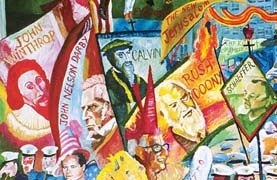
In this photo of a detail in Joel Pelletier’s satirical painting American Fundamentalists (Christ’s Entry into Washington in 2008), Rushdoony’s image appears on a placard.
The 1990s
Christian Reconstructionism began to fragment just as it achieved political power. Gary North, Rushdoony’s son-in-law, had a falling out with him over strategic differences. Rushdoony wanted to build his movement slowly and patiently, while North sought immediate tactical gains and alliances with other groups. North also predicted an imminent collapse of the US and deeply influenced the survivalist movement.
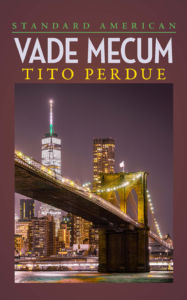
You can buy Tito Perdue’s novel Vade Mecum here
Critics of North call him a “doomsayer,” although he wasn’t entirely wrong in warning about problems. In the late 1990s, there was a widespread belief that the so-called Y2K bug in computer programming would have a crippling effect on the world starting on January 1, 2000. North was one of those who encouraged Americans to prepare for the worst. In the end, however, millions of dollars were spent to fix rewrite all the affected computer code, and when the year 2000 came, nothing significant happened. Itwas a blow to the credibility of the survivalist segment of the Christian Reconstructionist movement.
Besides this, some of the most important people who had been supporting the movement passed away in the late 1990s; Rushdoony’s own health started to decline. He likewise didn’t adapt to the times, such as by moving away from Cold War rhetoric and focusing on the new problem of the clash of civilizations instead, even though his family had personally experienced Islamic aggression and violence. Once the Religious Right enthusiastically backed George W. Bush’s disastrous military adventure in Iraq, its influence inevitably began to decline. Rushdoony himself passed away on February 8, 2001. As he slipped away, his son read the fifteenth chapter of 1st Corinthians to him.
America’s hard Leftists, who are often anti-white Jews, have learned something from the Christian Right’s success. They recognized that Rushdoony’s ideology favors old-stock Americans. Thus, today many ethnonationalist Jews warn against “Christian Nationalism” and are diligently working to disrupt gatherings of “Right-wing” whites. They are also seeking to cut off the flows of donations to pro-white and pro-Christian activists. (The two are not the same, but there is overlap.) This is the latest stage in the long-running cold genocide, led by ethnonationalist Jews, of Anglo-American whites. Thus, the story of the Armenians and that of old-stock Americans are indeed similar.
The Chalcedon Foundation continues to keep Rushdoony’s legacy alive today. All his books are still in print and are easy to acquire, and many of his lectures are available online. His insights into American history are outstanding.
Bibliography
G. Scott Gleaves, Did Jesus Speak Greek? The Emerging Evidence of Greek Dominance in First-Century Palestine (Eugene, Oreg.: Pickwick Publications, 2015)
Bedross Der Matossian, Shattered Dreams of Revolution: From Liberty to Violence in the Late Ottoman Empire (Stanford, Calf.: Stanford University Press, 2014)
Michael J. McVicar, Christian Reconstruction: R.J. Rushdoony and American Religious Conservatism (Chapel Hill, N. C.: The University of North Carolina Press, 2015)
Benny Morris & Ze’evi Dror, The Thirty-Year Genocide: Turkey’s Destruction of Its Christian Minorities 1894-1924 (Cambridge, Mass.: Harvard University Press, 2019)
Rousas John Rushdoony, The Foundations of Social Order: Studies in the Creeds and Councils of the Early Church, third edition (Vallecito, Calif.: Ross House Books, 1998)
Notes
[1] Rousas John Rushdoony, The Foundations of Social Order: Studies in the Creeds and Councils of the Early Church, third edition (Vallecito, Calif.: Ross House Books, 1998), p. 67.
[2] Michael J. McVicar, Christian Reconstruction: R. J. Rushdoony and American Religious Conservatism (Chapel Hill, N. C.: The University of North Carolina Press, 2015), p. 150.
Christian%20Reconstructionism%20andamp%3B%20Ethno-Religious%20Conflict%0APart%203%0A
Share
Enjoyed this article?
Be the first to leave a tip in the jar!
* * *
Counter-Currents has extended special privileges to those who donate at least $10/month or $120/year.
- Donors will have immediate access to all Counter-Currents posts. Everyone else will find that one post a day, five posts a week will be behind a “paywall” and will be available to the general public after 30 days. Naturally, we do not grant permission to other websites to repost paywall content before 30 days have passed.
- Paywall member comments will appear immediately instead of waiting in a moderation queue. (People who abuse this privilege will lose it.)
- Paywall members have the option of editing their comments.
- Paywall members get an Badge badge on their comments.
- Paywall members can “like” comments.
- Paywall members can “commission” a yearly article from Counter-Currents. Just send a question that you’d like to have discussed to editor@counter-currents.com. (Obviously, the topics must be suitable to Counter-Currents and its broader project, as well as the interests and expertise of our writers.)
To get full access to all content behind the paywall, please visit our redesigned Paywall page.

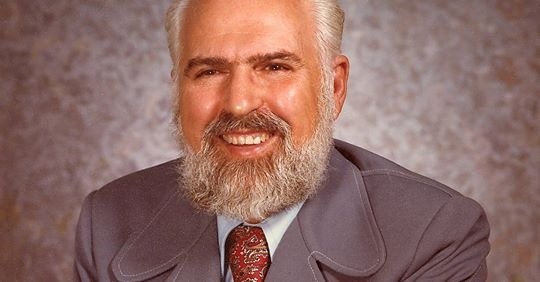
2 comments
Thanks for these three pieces. As usual for you, well-researched, well-written and well-thought out.
I was only aware of Rushdoony as part of the marginal theonomy movement of decades ago, with emphasis on replacing secular law with the Book of Deuteronomy and its robust punishments. Your contextualizing him makes him and his ideology more understandable and less crazy-sounding.
I was struck by the section in the second piece where Paiute Pete told him that Whites would wind up like the Indians if they placed their hopes in rights instead of force. My darker vision of our future is very similar, with the fate of the Indians being the exemplar.
Your historical rehearsal of the Ottoman Empire leads me to ask where the push is for reparations from the Turks, whose ancestors’ centuries-long patterns of imperialism, colonialism, slavery and genocide are second to none. (I know the answer, of course.)
Thanks for the time, effort and skill you put into this article.
Both ‘the state’ and ‘the free market’ are predicated on the destruction of actually-existing communities via the elevation of ‘individual preference’ over all other considerations.
The reason the Christian Right could not win is the same reason that the Right in general cannot win: It has fully incorporated alienating ideological components into its foundation, like rotten limestone in cheap cement.
The dispute between the Calvinist Rushdoony and the Catholic Weyerich is a perfect example in miniature why ‘Christian Nationalism’ cannot work in the long run to help the White race.
Sure, it can destroy ‘pagans’ (mostly White) and ‘heathens’ (mostly White) and might even get around (eventually) to jews and muslims, but, in the long run, Christianity is one long schism presaging sectarian violence.
In other words, Whites killing Whites because, you know, Jesus.
Comments are closed.
If you have a Subscriber access,
simply login first to see your comment auto-approved.
Note on comments privacy & moderation
Your email is never published nor shared.
Comments are moderated. If you don't see your comment, please be patient. If approved, it will appear here soon. Do not post your comment a second time.